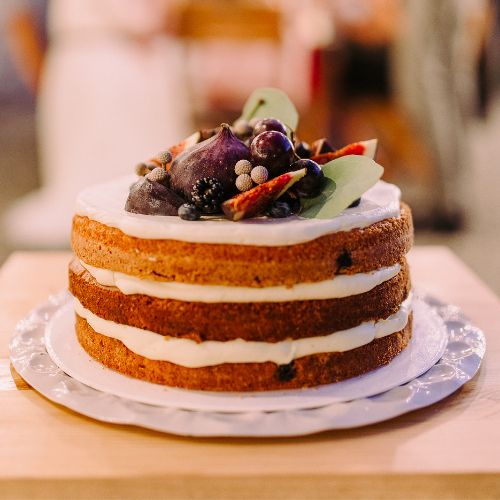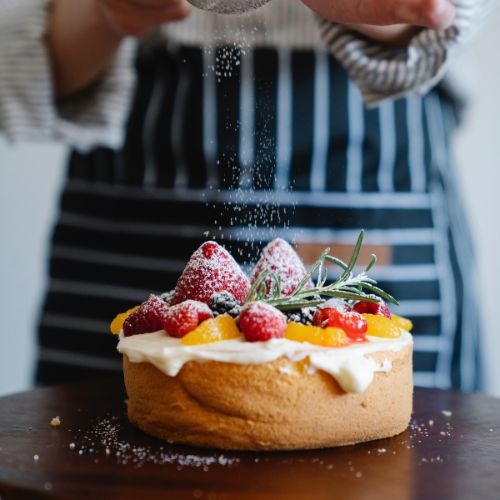What Is The Best Type Of Flour For Cake Baking?
Cake is a delightful treat that brings joy to both the baker and those who enjoy its deliciousness. The process of baking a cake is an experience filled with anticipation, creativity, and a touch of magic. From choosing the perfect recipe to savoring the final product, baking a cake is an art form that allows for personal expression and the creation of lasting memories.
One of the most enjoyable aspects of baking a cake is the opportunity to experiment with flavors, textures, and decorations. Whether it’s a classic vanilla cake, a rich chocolate delight, or a fruity creation, there are endless possibilities to explore. The act of measuring ingredients, combining them in just the right proportions, and witnessing the transformation in the oven is both satisfying and exciting.
The aroma that fills the kitchen as the cake bakes is simply irresistible. The anticipation builds as the scent wafts through the air, and the timer counts down the minutes. The joy of baking a cake lies in the anticipation of that first bite, as the cake is pulled out of the oven, cooled, and finally frosted. The reward is a moist, tender crumb and a burst of flavor that is worth every moment spent in the kitchen.
When it comes to choosing the best flour for baking a cake, it’s essential to consider the desired texture and structure. All-purpose flour is a versatile choice, providing a balance between structure and tenderness. It works well for most cake recipes, resulting in a cake with a tender crumb and a good rise. If a recipe specifically calls for cake flour, it is advisable to use it. Cake flour has a lower protein content, resulting in exceptionally light and fluffy cakes with a delicate texture.
Experimenting with different types of flour can also be rewarding. Whole wheat flour adds a nutty flavor and a denser texture, making it a great choice for more rustic or hearty cakes. Gluten-free flours, such as almond flour or rice flour, are ideal for those with dietary restrictions, producing cakes that are moist and flavorful.
Baking a cake is a delightful experience that brings out the inner artist in all of us. The joy of experimenting with flavors, the anticipation of that first bite, and the satisfaction of creating a masterpiece are all part of the magic. Whether using all-purpose flour, cake flour, or exploring alternative options, the key is to let your creativity shine and savor every moment of the cake-baking journey.
What Is The Best Type Of Flour For Cake Baking?

When it comes to baking cakes, the best type of flour to use is usually all-purpose flour or cake flour. The choice between the two depends on the desired texture and structure of the cake.
- All-purpose flour: This is the most commonly used flour for cake baking. It is a versatile flour that contains a moderate amount of protein, which helps provide structure to the cake. All-purpose flour produces cakes with a tender crumb and a good rise. It works well for most cake recipes, including layer cakes, sheet cakes, and cupcakes.
- Cake flour: Cake flour is a finely milled flour with a lower protein content than all-purpose flour. It is made from soft wheat and has a finer texture. Cake flour produces cakes that are exceptionally tender, light, and fluffy. It is ideal for delicate cakes, such as sponge cakes and chiffon cakes. If a recipe specifically calls for cake flour, it’s best to use it to achieve the desired results.
If you don’t have cake flour on hand, you can make a homemade substitute by combining all-purpose flour with a small amount of cornstarch. For every cup of all-purpose flour, remove two tablespoons of flour and replace it with two tablespoons of cornstarch. Sift the mixture several times to ensure even distribution.
It’s worth noting that specialty flours, such as self-rising flour or whole wheat flour, may alter the texture and flavor of cakes. Unless a recipe specifically calls for these flours, it’s generally recommended to stick with all-purpose or cake flour for cake baking.
What is cake flour called?
Cake flour, also referred to as super fine flour or extra fine flour, undergoes a specific milling process that results in a lighter powder compared to other types of flour. This unique texture plays a crucial role in its performance when used in baking cakes and other delicate baked goods.
The milling process of cake flour involves grinding the wheat berries into a fine consistency, which is then sifted multiple times to remove any coarse particles. The result is a flour with a much finer texture than all-purpose flour or other types of flour. The fine particles of cake flour contribute to its ability to absorb liquids, particularly water, more efficiently.
The enhanced ability to absorb water is one of the key attributes of cake flour. When the flour comes into contact with liquid ingredients during mixing, its finely milled structure enables it to absorb the moisture rapidly. This efficient absorption helps to create a smooth and well-hydrated batter or dough.
The improved hydration in cake batter results in cakes with a fine, tender crumb and a soft texture. The finer particles of cake flour create a more delicate structure, allowing for a lighter and fluffier end product. The softness and tenderness associated with cakes made with cake flour contribute to their melt-in-your-mouth quality.
The lighter texture of cake flour also helps in achieving a more even rise during baking. The fine particles allow for better incorporation of air into the batter, promoting a more uniform distribution of bubbles. This leads to a cake with a more consistent rise, avoiding excessive denseness or unevenness.
Overall, the finer texture of cake flour, also known as super fine flour or extra fine flour, enhances its ability to absorb water, resulting in cakes and baked goods with a fine crumb and a soft, delicate texture. Its unique characteristics make it a preferred choice for recipes that require a tender and light outcome, such as sponge cakes, chiffon cakes, and other delicate pastries.
Final Thoughts On “What Is The Best Type Of Flour For Cake Baking?”

cake baking is a delightful and creative experience and a journey that requires careful consideration of the type of flour used. While the process of baking a cake can be immensely enjoyable, selecting the right flour is the key to achieving a perfect outcome.
The fun of cake baking lies in the excitement of exploring different flavors, experimenting with various ingredients, and creating a masterpiece that delights both the eyes and the taste buds. The act of measuring and combining ingredients, mixing them together, and witnessing the transformation in the oven is a satisfying and rewarding process. The joy of sharing a freshly baked cake with loved ones and seeing their smiles of appreciation is truly priceless.
However, amidst the fun and creativity, it is essential to recognize flour’s crucial role in cake baking. The choice of flour significantly impacts the cake’s texture, structure, and overall success. The two most commonly used types of flour for cake baking are all-purpose flour and cake flour.
All-purpose flour is versatile and works well for most cake recipes. It provides a good balance of structure and tenderness, resulting in cakes with a tender crumb and a satisfactory rise. All-purpose flour is suitable for various types of cakes, including layer cakes, sheet cakes, and cupcakes.
On the other hand, with its finer texture and lower protein content, cake flour is specifically designed to produce exceptionally tender, light, and fluffy cakes. It absorbs water better, leading to a fine crumb and a soft texture. Cake flour is particularly ideal for delicate cakes such as sponge cakes and chiffon cakes, where a light and airy texture is desired.
Selecting the right flour for cake baking is crucial because using the wrong type of flour can affect the final outcome. Specialty flours like self-rising flour or whole wheat flour may alter the texture and flavor of the cake, and should be used only when a recipe specifically calls for them.
Ultimately, the best type of flour for cake baking depends on the desired texture, structure, and specific recipe requirements. It’s always a good practice to follow the recipe instructions and use the recommended flour. However, if a recipe does not specify the type of flour, all-purpose flour is a reliable choice that yields good results in most cases.
In conclusion, the joy of cake baking is enhanced when the right flour is chosen. Whether you opt for all-purpose flour or cake flour, the key is understanding their qualities and selecting accordingly. Doing so can elevate your cake-baking experience and achieve the perfect texture, crumb, and taste that will leave everyone craving for more. So, roll up your sleeves, grab your flour, and let your imagination soar as you embark on a wonderful cake-baking adventure.
READ MORE
Can I Substitute Butter For Oil In Brownie Mix
How To Fix Too Much Oil In Brownies?